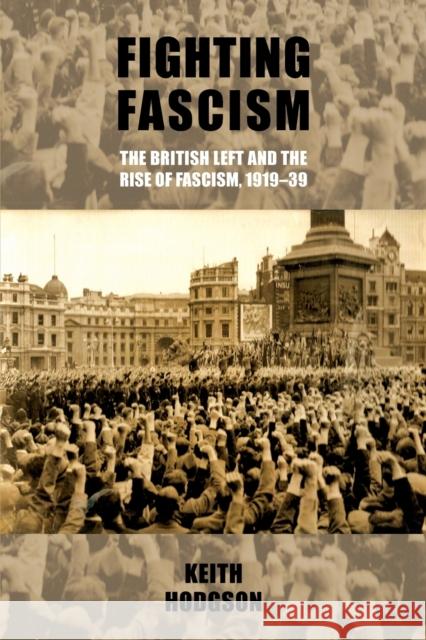Fighting Fascism: The British Left and the Rise of Fascism, 1919-39 » książka
Fighting Fascism: The British Left and the Rise of Fascism, 1919-39
ISBN-13: 9780719091216 / Angielski / Miękka / 2014 / 256 str.
Fighting Fascism: The British Left and the Rise of Fascism, 1919-39
ISBN-13: 9780719091216 / Angielski / Miękka / 2014 / 256 str.
(netto: 147,30 VAT: 5%)
Najniższa cena z 30 dni: 132,56
ok. 30 dni roboczych.
Darmowa dostawa!
In the years between the two world wars, the parties of the left had to confront new and frightening movements which were intent on their complete destruction. Fascism triumphed in Italy, Germany, Spain and elsewhere, coming to power after intense struggles with the labour movements of those countries. Yet in Britain, the left was able to confront the challenge of fascism effectively by understanding the nature of the threat, and by evolving tactics which played a crucial role in preventing British fascist movements from growing and developing as they had elsewhere. This book examines the analyses of fascism put forward by British socialists and communists, explains the anti-fascist strategies they proposed, and assesses the reasons for their effectiveness. In recounting the theories and actions of the Labour Party, the TUC, the Communist Party of Great Britain and other left-wing groups, the work seeks to explain their different approaches, while at the same time highlighting the common thread that linked all their interpretations of fascism. The author seeks to redress an imbalance which has led to the ideas and actions of British anti-fascists being less well covered than those of their counterparts in Europe. The work is also a contribution to the ongoing debate regarding the nature of fascism, and of its neglected antithesis, anti-fascism. It will appeal to students and scholars of British history and politics in the inter-war period, as well as to those interested in the political ideologies of the left and the right.











